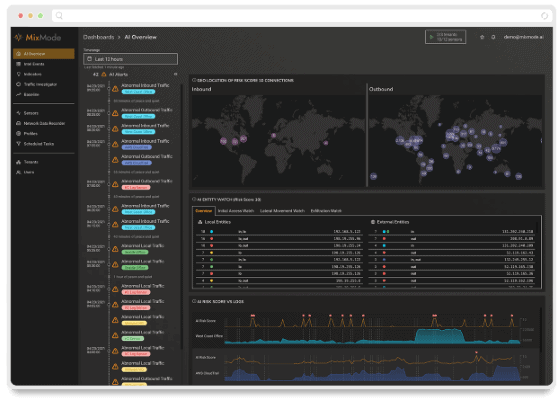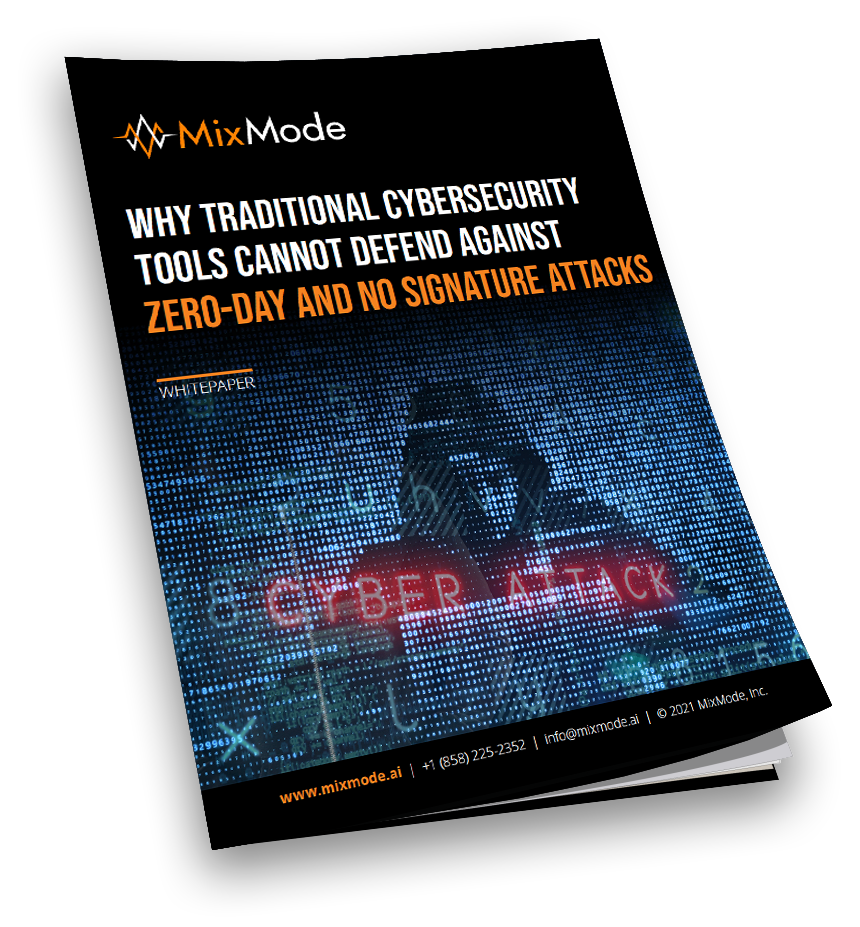Can your cybersecurity solution really combat zero-day attacks? The answer is most likely “no,” despite vendor claims.
Buyer beware, indeed. Vendors in today’s marketplace tend to over promise on fundamental cybersecurity features when in fact, most lack the AI capabilities to detect these attacks or to monitor systems in real-time. And this is a major problem for enterprises.
In 2020 over 70% of malware attacks that took place were zero-day malware attacks, going completely unseen by signature based detection tools.
In our newest whitepaper, “Why Traditional Cybersecurity Tools Cannot Defend Against Zero-Day and No Signature Attacks,” we dive into how traditional cybersecurity tools work, why this fundamentally limits them from being able to detect zero-day or previously unknown attacks, why the industry standard for breach detection is around six to eight months and how modern, contextually-aware AI overcomes the limitations of traditional cybersecurity solutions.
Can You Afford to Wait Eight Months to Find Out About a Breach?
The reality is that many cybersecurity tools on the market today — including SIEM, XDR, NTA and UEBA — are limited to the industry standard: detection six to eight months after a breach.
These systems can offer insight into what happened historically and then attempt to apply that knowledge to future behavioral analysis, but detecting and stopping attacks in real-time is far from guaranteed.
Similarly, legacy cybersecurity vendors choose their references to “real-time” in an intentionally misleading way. For example, “real-time investigation,” “real-time search,” “real-time content enrichment,” or “real-time data processing.”
The reason for this misleading language is due primarily to traditional security platform’s dependence on historical, aggregate, and log data sources, which by their very nature, are not “real-time.”
If you’re wondering why ransomware attacks seem to be on the rise, the simplest answer is that bad actors have figured out how to work around traditional cybersecurity solutions. Modern threats are being guarded against by inadequate, legacy applications.
Continue reading this whitepaper here:
Why Traditional Cybersecurity Tools Cannot Defend Against Zero-Day and No Signature Attacks
MixMode Articles You Might Like:
How AI is Contributing to Global Warming and What it Can Learn from Bitcoin
Incremental Stacking of Correlative Analysis Platforms Will Ultimately Prove Ineffective and Costly
A Modern SOC Should Not Be Entirely Dependent On Human Operators and Their Personal Experience
Maximize ROI with Greater Efficacy Using Unsupervised AI
How Self-Supervised AI Tackles Ambiguity in Network Security
Performing Critical Cyber Diligence for Mergers and Acquisitions Using MixMode



